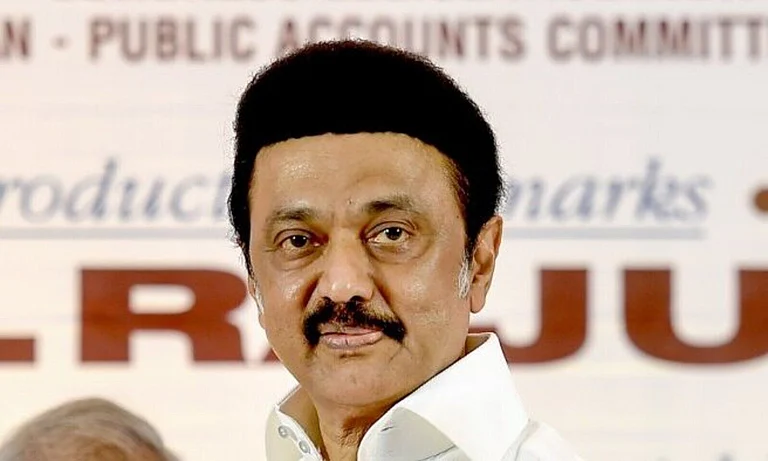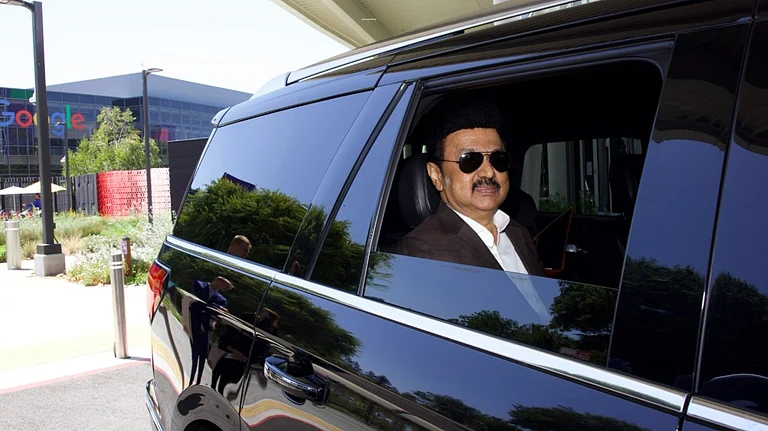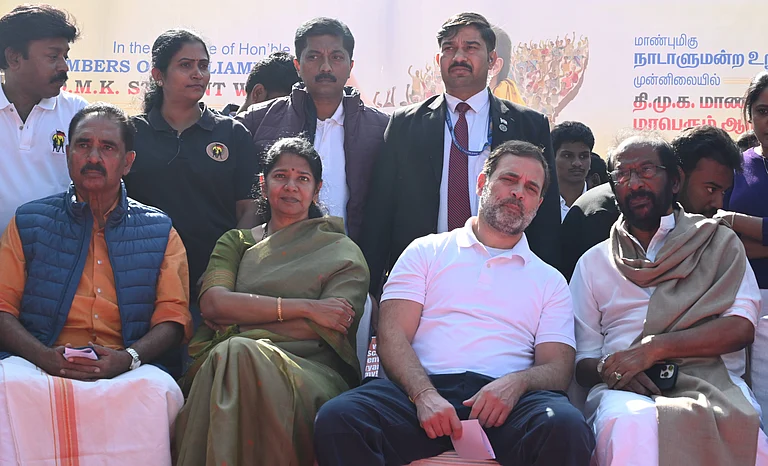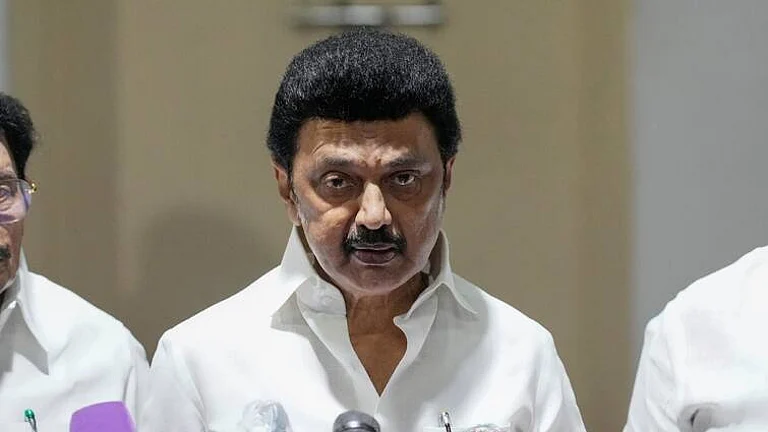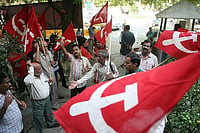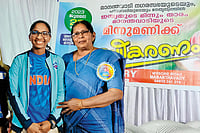
DMK leaders do not confirm reports of legislation to ban Hindi
BJP refuses to respond to rumours, but says that if true, such a move would be an attempt to divert public attention from the Supreme Court’s stampede investigation order
Social media is abuzz with stories and speculation about potential Hindi ban legislation in Tamil Nadu
As Tamil Nadu inches closer to the 2026 Assembly elections, unconfirmed reports suggest the DMK government is returning to one of its oldest political battlegrounds — the language question. Reports have emerged suggesting that the government is considering a bill to ban Hindi signboards in the state, a move that, if true, would mark an escalation of its decades-long resistance to Hindi imposition.
Though DMK leaders whom Outlook spoke to refused to confirm the reports. They maintained that the party remains unwavering in its stand: Tamil Nadu will not tolerate the dominance of any other language over Tamil. “We have always said Tamil should get priority in Tamil Nadu,” one senior leader said, reflecting the party’s enduring commitment to linguistic pride and regional identity.
The timing of the controversy is telling. With Bihar heading to the polls, the move by a key constituent of the INDIA alliance has stirred heated discussions on social media. What some see as an assertion of Tamil identity, others have spun into an exaggerated narrative — that the DMK is preparing to “ban North Indians” from the state.
Language has always been more than a cultural issue in Tamil Nadu; it is a political heartbeat. The DMK’s opposition to the Centre’s three-language policy is rooted in the state’s historic resistance to what it perceives as a stealthy attempt to impose Hindi. For the ruling party, defending Tamil is not merely a policy stance — it is a reaffirmation of Dravidian self-respect, a rallying cry that has shaped the state’s political imagination for over half a century.
DMK leader Prof. Constantine Raveendran did not confirm the reports but told Outlook that the party has always opposed the imposition of any language and has consistently stood for giving primacy to Tamil in the state. At the same time, he pointed out that institutions such as the Dakshin Bharat Hindi Prachar Sabha continue to have their headquarters in Chennai — an indication, he said, that the DMK’s stance is not against Hindi or any other language, but against the idea of linguistic dominance.
As elections approach, reviving the language debate could once again serve as a potent reminder of the DMK’s ideological lineage — and a test of how far cultural assertion still resonates in a state now more urbanised, connected, and cosmopolitan than ever before.
When contacted, the BJP initially declined to react to what it called “unconfirmed reports.” But when pressed, the party’s chief spokesperson, Narayanan Thirupathy, did not mince words. Speaking to Outlook, he said that if the government was indeed planning to ban Hindi movies, songs, or signboards, “that would definitely be a stupid move.”
“Right now, these are only rumors,” he said. “But if the DMK is actually going ahead with such a decision, it will only be an attempt to divert public attention from the recent Supreme Court verdict ordering a CBI probe into the stampede tragedy. Banning a language is not going to help anyone.”
Thirupathy went a step further, taking a swipe at the ruling party’s leadership. “If they are so serious about banning Hindi,” he quipped, “the DMK should first start with the schools run by the first family of the party.”
A senior journalist, who did not wish to be named, suggested that the rumours might not be accidental. “Some sections of the media could be deliberately amplifying these stories for a North Indian audience,” the journalist said, “to cast aspersions on the INDIA alliance ahead of the Bihar elections.”
Earlier this year, while presenting the state budget, the Tamil Nadu government made a symbolic statement by pairing the official Indian rupee symbol ‘₹’ with the Tamil letter ‘ரூ’ as the logo for its budget documents—a subtle assertion of linguistic identity within an official framework.
The DMK government has also been vocal in opposing the Union government’s efforts to enforce the three-language policy through the National Education Policy (NEP). It has accused the Centre of withholding Rs 2,150 crore in funds as retaliation for Tamil Nadu’s refusal to implement the NEP — a move the state views as yet another attempt to impose Hindi and undermine federal principles.








